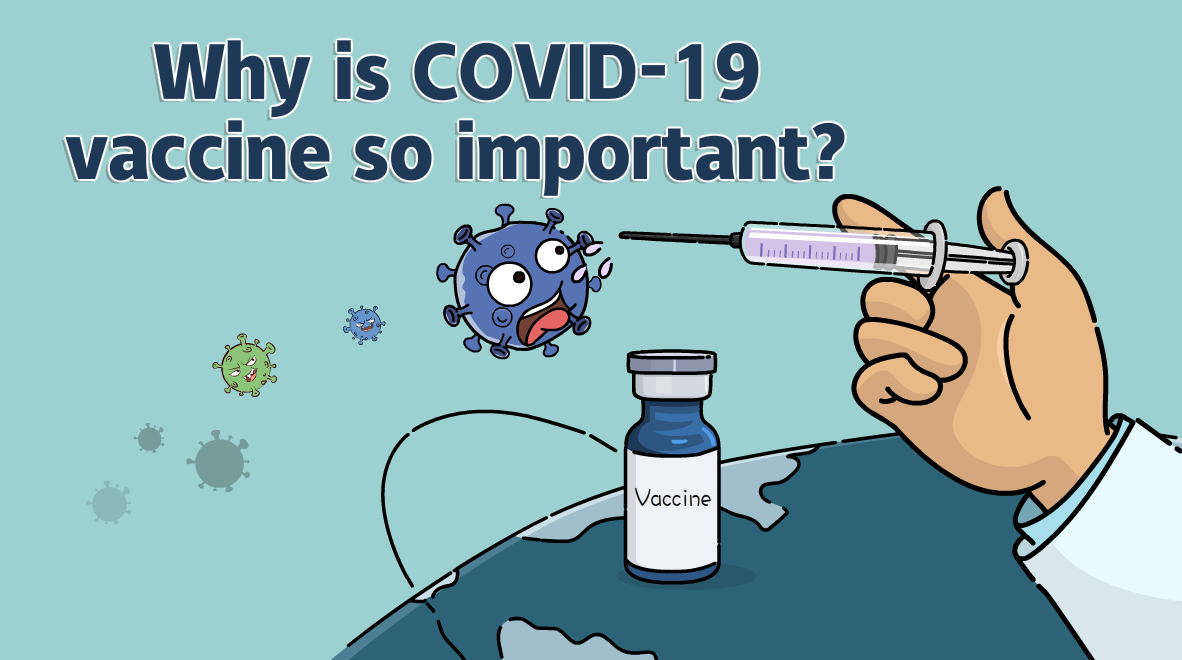03:29

COVID-19 is still ravaging the world. As winter comes, the rate of infection is rising.
But the world is exhausted with months of compulsory mask wearing, social distancing, curfews and lockdowns. A vaccine is now the most powerful way to curb the disease.
When vaccinated, the body's immune system will be activated to recognize the invading pathogen and produce antibodies. This means that if the person is exposed to the dangerous pathogen in the future, their immune system should respond immediately to destroy it with antibodies, thus protecting against disease.
After enough people in a population are vaccinated, the virus will effectively stop spreading by what's called "herd immunity".
It is worth noting that since the pandemic began, "herd immunity" has been repeatedly mentioned by many countries, but in the context of exposing people to the virus rather than protecting them from it with a vaccine. The World Health Organization (WHO) said that approach is "scientifically and ethically problematic."
Older people and those with underlying conditions are most at risk of severe disease and death. And people of all ages have been infected and died.
In the United States, 1.6 million children have tested positive for the coronavirus.
"Letting the virus circulate unchecked therefore means allowing unnecessary infections, suffering and death," said the WHO.
Throughout history, humans have developed vaccines for a number of life-threatening diseases, including meningitis, tetanus, measles and polio. But it often takes years, even decades to develop an effective vaccine.
In order to ensure safety and effectiveness, a vaccine usually goes through pre-clinical research, three phases of clinical trials, regulatory approval, manufacturing and circulation before it is released. Researchers across the world have taken measures to speed up the process.
As of December 22, the WHO counted 61 COVID-19 candidate vaccines in clinical trials – 16 are already in Phase III trials, and five of them are from China.
Multiple countries have already offered jabs to the population or have made plans to do so.
Read more:
'A window of hope' - Europe rejoices as COVID-19 vaccinations begin
UAE rolls out free Chinese COVID-19 vaccine to public
U.S. FDA grants Pfizer-BioNTech COVID-19 vaccine for emergency use
China's vaccine research values both speed and safety. It has adopted five technological approaches.
In October, China joined COVAX, an international initiative aimed at ensuring equitable global access to COVID-19 vaccines, pledging to "make vaccines developed and deployed by China a global public good, which will be provided to developing countries as a priority."
The country will likely have produced over 610 million doses of COVID-19 vaccines by the end of the year.
Although the virus has mutated over the past few months, health experts believe that the current vaccines can still be effective. The vaccines are also easy to tweak against mutations.
Read more:
How will the new COVID-19 variant affect vaccines?
'New variant' of COVID-19 detected as cases rise in southeast England
For the world, access to COVID-19 vaccines brings hope of getting life back on track.

